There is a confusion this year between GCSE pass rates for schools, and those including re-sitters. We look at what happened for schools only.
16 vs Post-16
The number of pupils resitting maths and English GCSEs has increased dramatically. The charts below separate scores by those who are over 16 (resitters) and 16 year-olds (which should really be labelled Year 11 as it includes everyone in the cohort, even if their birthday isn’t until next week)
English Language GCSE
The A*-A rate is up for 16 year-olds this year but the A*-C rate is down compared to last year.
There are some issues with the profile of entries which may be causing this shift. For example, some schools use multiple exam boards for English and also use international qualifications which are not included here.
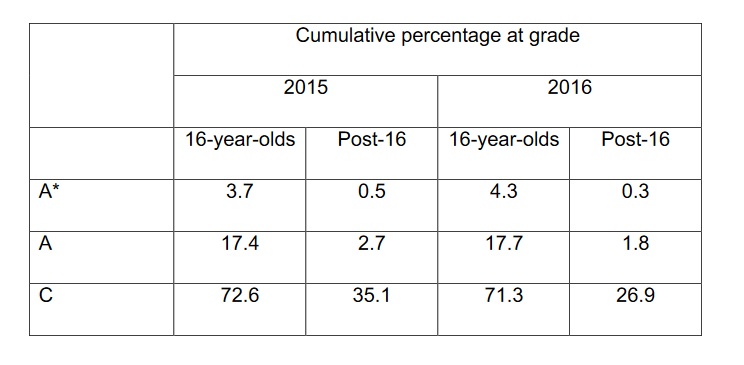
English Literature GCSE
English Literature does not have as many resitters – because that isn’t a compulsory resit grade – so the scores below are largely reflective of schools and 16 year-olds.
The slight decline in C grades is again linked by the exams regulator to some movement of pupils likely to get this grade to other qualifications.
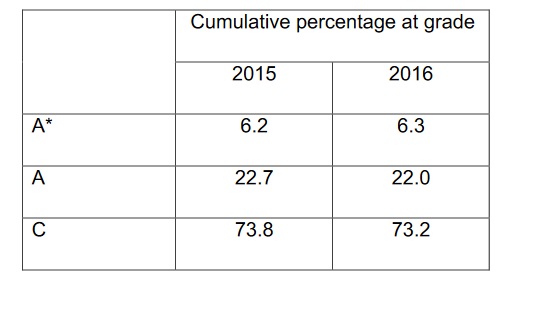
Maths GCSE
Tiny shift in entries and overall, for 16 year-olds, the numbers are up.
A*-C up from 69.1 to 70.5 per cent.
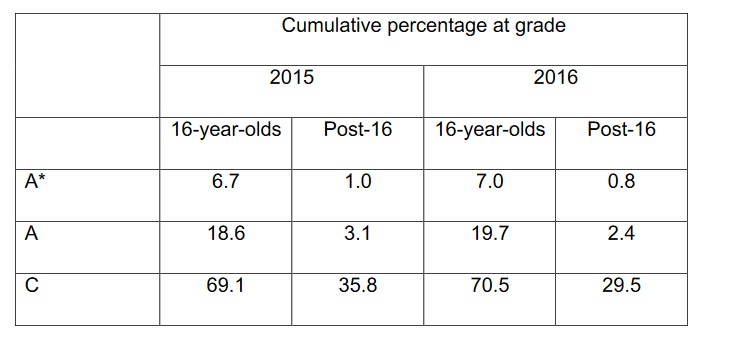
EBacc Subjects (including science)
As these are not affected by resits, the percentages below largely reflected outcomes at 16.
The chart on the right shows the increase or decrease in number of students per school taking a subject.
Where a subject is increasing its intake – eg Geography – there is typically a drop in the A*-C grade rate.
This suggests the dips reflect a change in entry profile, rather than worse teaching.
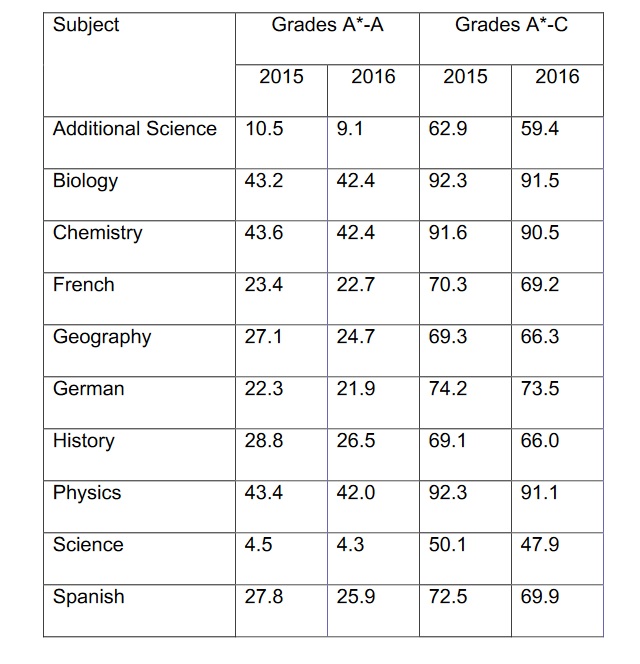
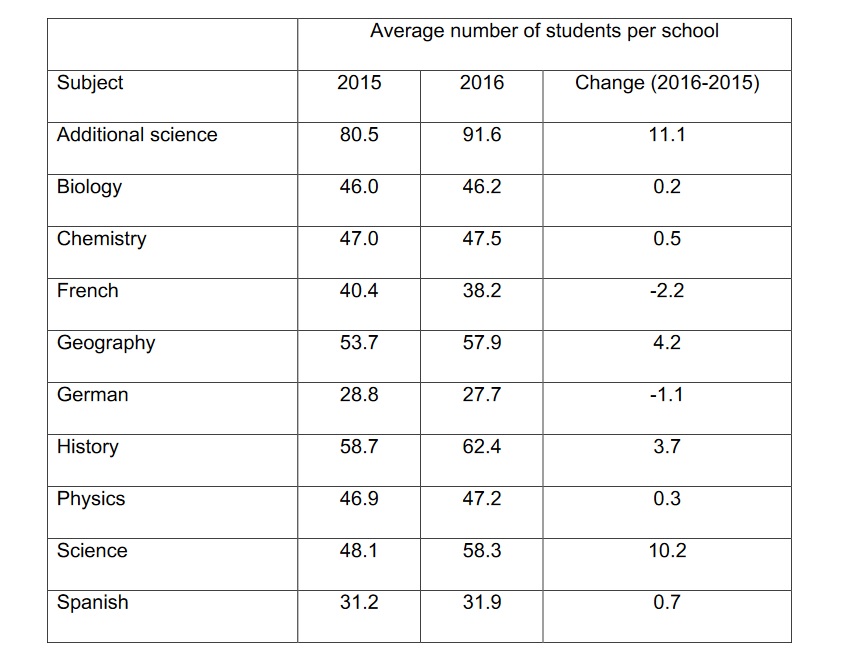
In fact, this chart shows how the dips in results were largely predicted by changes in pupil profiles
This chart shows the expected change in the A*-C rate given the change in prior attainment of pupils taking the exams this year.
As more pupils with lower prior attainment took the subjects it was expected the proportion of passes would decrease – and it did.
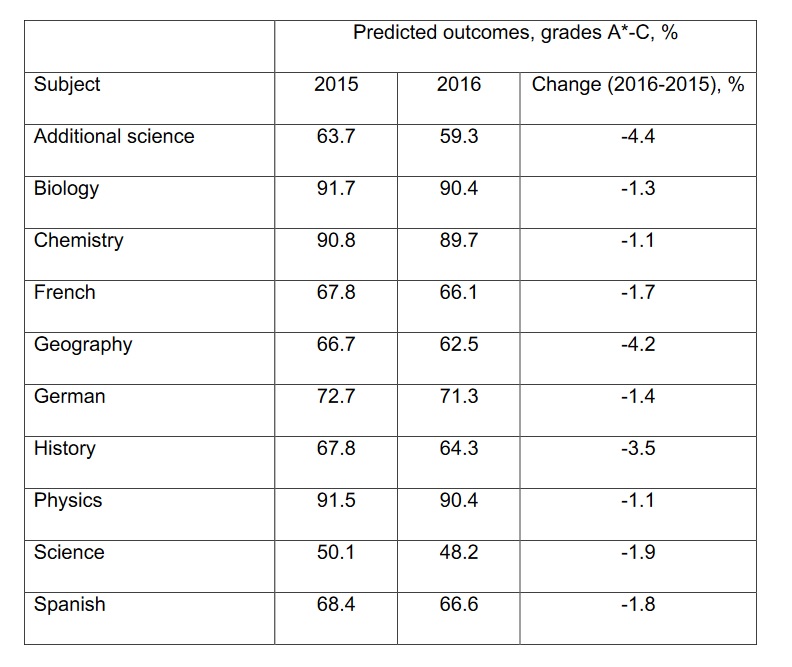
Save


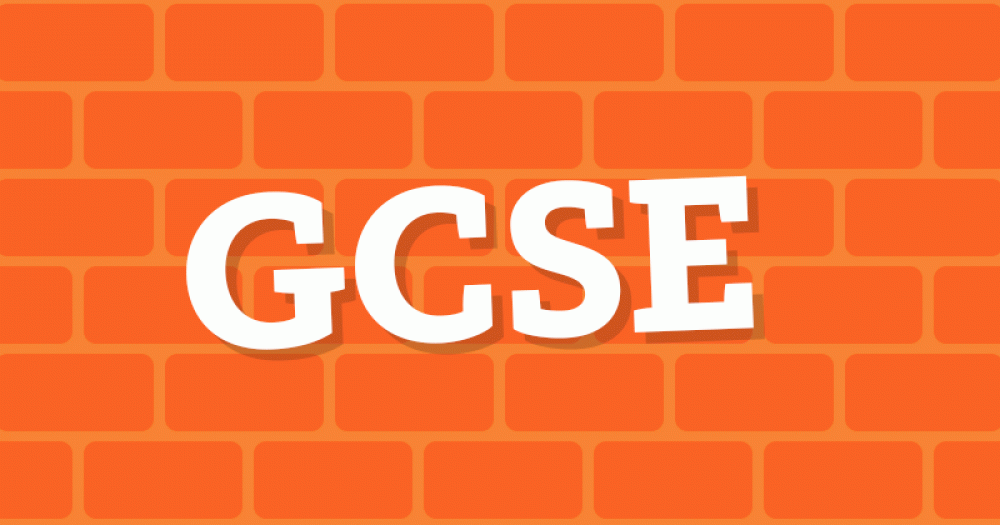





I read your article on the GCSE performance of 16 year olds with great interest. I would be very grateful if you could let me know what sources you used to distinguish between the overall results and the results of 16 year olds. [I ought to know this but I don’t!]